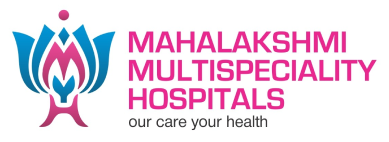
The Impact of Age on IVF Success: When is it Too Late?
In Vitro Fertilization (IVF) is a promising hope for couples grappling with conception challenges. However, the success of IVF isn't a one-size-fits-all scenario. Among the myriad factors influencing IVF outcomes, age takes centre stage.
Fertility, like fine wine, tends to peak in youth and gradually wanes over time. A woman's reproductive journey is characterized by a finite reserve of eggs, which diminishes in both quantity and quality as she ages. By the age of 30, fertility begins a perceptible descent, plunging more rapidly after 35. The quality of eggs deteriorates, escalating the risk of chromosomal abnormalities and miscarriages.
IVF Success Rates by Age
- Under 35: IVF offers hope to approximately 32 out of every 100 women attempting pregnancy for the first time.
- 35-37: The odds decline slightly, with 37 out of 100 IVF cycles culminating in successful pregnancies for those who've previously given birth.
- 38-40: At this stage, the likelihood diminishes further, with 34 percent of women who've had multiple children achieving successful IVF pregnancies.
- Over 40: IVF success rates plummet to around 20%, with a live birth rate of 14% for those aged 40 and above.
These figures underscore the diminishing prospects of IVF success as age advances, emphasizing the importance of timely intervention.
Should I Consider IVF After 40?
While IVF remains a viable option for women over 40, it's essential to approach the journey with realistic expectations. Maternal age significantly impacts the chances of conception and live birth. Women over 40 face increased risks of complications, including preeclampsia and chromosomal abnormalities in offspring.
The Role of Male Fertility
It's not just women whose age impacts IVF success. Male fertility undergoes subtle shifts with advancing years. While men don't experience the same rapid decline as women, sperm quality can diminish, affecting IVF outcomes. As such, couples embarking on the IVF journey must consider both partners' ages and fertility status.
Maximizing IVF Chances Regardless of Age
Despite age-related challenges, there are steps individuals can take to optimize their IVF journey:
- Lifestyle Modifications: Embracing a healthy lifestyle, including a balanced diet, regular exercise, and avoiding harmful habits like smoking, can positively influence IVF outcomes.
- Medical Intervention: Seeking guidance from fertility specialists and undergoing comprehensive evaluations can identify underlying issues and tailor treatment plans to individual needs.
- Consideration of Alternatives: For individuals facing significant age-related fertility decline, exploring options such as egg donation or embryo adoption can offer renewed hope on the path to parenthood.
Navigate Through IVF and Age with Expert Help
Understanding the nuanced interplay between age, fertility, and IVF outcomes can empower you to make informed decisions and embark on your fertility journey with clarity and confidence. While age may pose challenges, it need not be a barrier to realizing the dream of parenthood through IVF.
By embracing a proactive approach, seeking expert guidance, and nurturing hope, couples can navigate the IVF landscape with resilience and optimism, paving the way for a brighter, family-filled future.
At Mahalakshmi Hospital, we provide guidance on understanding how age impacts fertility and IVF outcomes. With expert support, couples can make informed decisions, overcoming age-related challenges with confidence. Through proactive strategies and nurturing hope, our team empowers couples to navigate IVF with resilience, paving the way for a brighter future filled with family.

